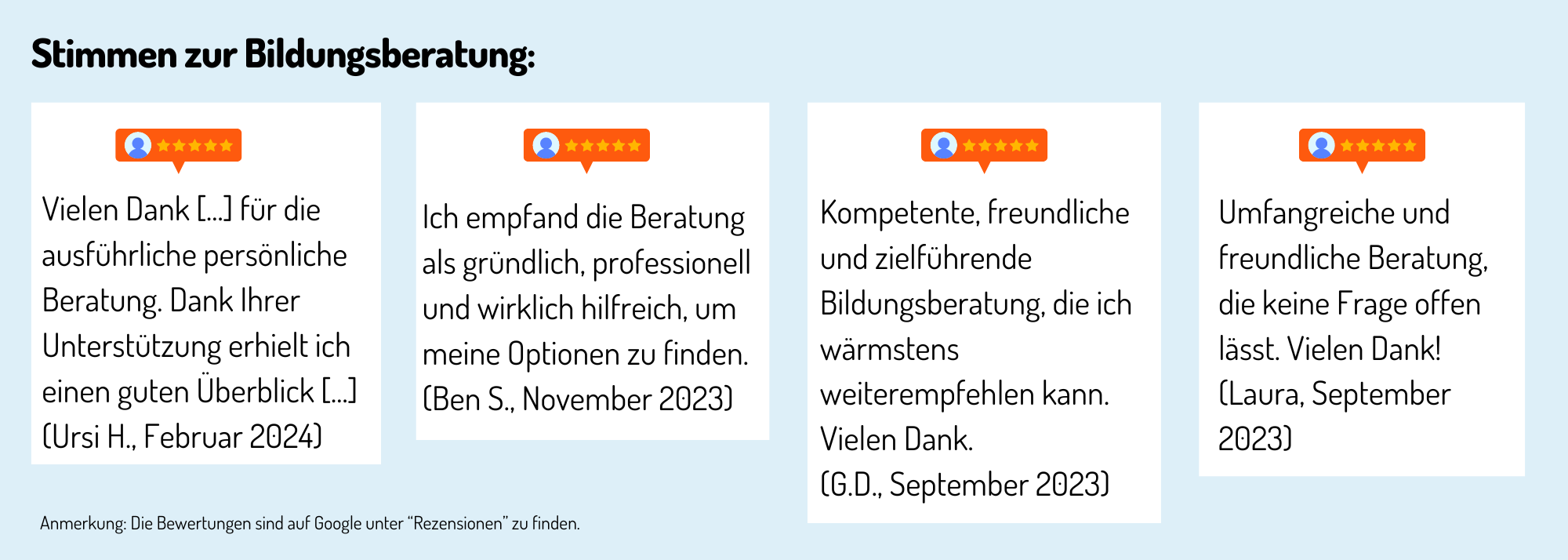Optometry: training, further education, studies, overview of schools and offers
Are you looking for a suitable training provider for training / further training in optometry?
Here you will find suitable offers from various educational institutions as well as further information and decision-making aids for choosing the right continuing education program.
Optometry - for flawless binocular vision
The science of measuring and evaluating visual functions is known as optometry. It deals with the correction of visual disorders and defective vision. The following is a list of just a few of the visual functions that are tested and evaluated in this specialist area:
- Glare sensitivity
- Resolution (spatial / temporal)
- Color vision
- Fixation
- Contrast perception
- Night and day vision
- Visual acuity
- Depth discrimination etc.
This interesting and comprehensive specialist area sees itself as a complement to conventional optometry. Opticians deal with the single eye as an optical instrument and their work is actually a craft for determining, adjusting and producing optical aids and corrections (e.g. glasses or contact lenses). As can be seen from the above list, optometrists deal with binocular vision.
If you are interested in training or further education in this field, there are various courses of study at universities of applied sciences at both the training and further education levels. The education portal Ausbildung-Weiterbildung.ch clearly lists the top offers in your region! Order free and informative brochures on optometry directly from the universities of applied sciences of your choice.
Questions and answers
Erfahrungen, Bewertungen und Meinungen zur Ausbildung / Weiterbildung
Haven't found the right training or further education yet? Benefit from educational advice now!
Further training is not only important in order to maintain or increase professional attractiveness, investing in training or further training is still the most efficient way to increase the chances of a pay rise.
The Swiss education system offers a wide range of individual training and further education opportunities - depending on your personal level of education, professional experience and educational goals.
Choosing the right educational offer is not easy for many prospective students.
Which training and further education is the right one for my path?
Our education advisory team will guide you through the "education jungle", providing specific input and relevant background information to help you choose the right offer.
Your advantages:
You will receive
- Suggestions for suitable courses, seminars or training programs based on the information you provide in the questionnaire
- An overview of the different levels and types of education
- Information about the Swiss education system
We offer our educational counseling in the following languages on request: French, Italian, English
Register now and concretize your training plans.




